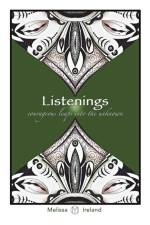av Desh Subba
191
Typically without conscious awareness, we neglect to see that we live in a mythical world largely operating on a vision of segmenting and reductionism, focusing on the smallest particles. Yet, there are other myths too we are influenced by and may influence them to serve our growing consciousness for a good life. For, example, there is Sisyphus, the Panopticon, the Scapegoat, Das Capital, and Metamorphosis as literary and powerful motivational contexts driving humanity.A person desperate for survival heaves up his life, family, and capital. Meanwhile, they always think they are being watched by the spiritual and physical Panopticons. To reach the mountain-top and subdue their competitors or enemies, they scapegoat innocent people. We see millions of people become refugees, victims, laborers, and disabled by wars, beliefs, egos, needs, desires, and the pursuit of happiness. Yet, progress is not so easy, it is even ironic. Not only in our escaping we scapegoated ourselves but humans also scapegoated Nature. Driven by a recurrence of fear-based ways and stories, Heavenly Earth became Hell by our doing. It is time to see fear for its major role. It is time to excavate and rewrite history, culture, morality, politics, literature, and philosophy through a systematic criticism of Sisyphus, the Panopticon, and the Scapegoat point of view. This book is the foundation for it. Among a number of analytical perspectives, it focuses on classic existential literary teaching stories, like Metamorphosis, The Myth of Sisyphus, and NoExit from a new Fearmorphosis lens.






























